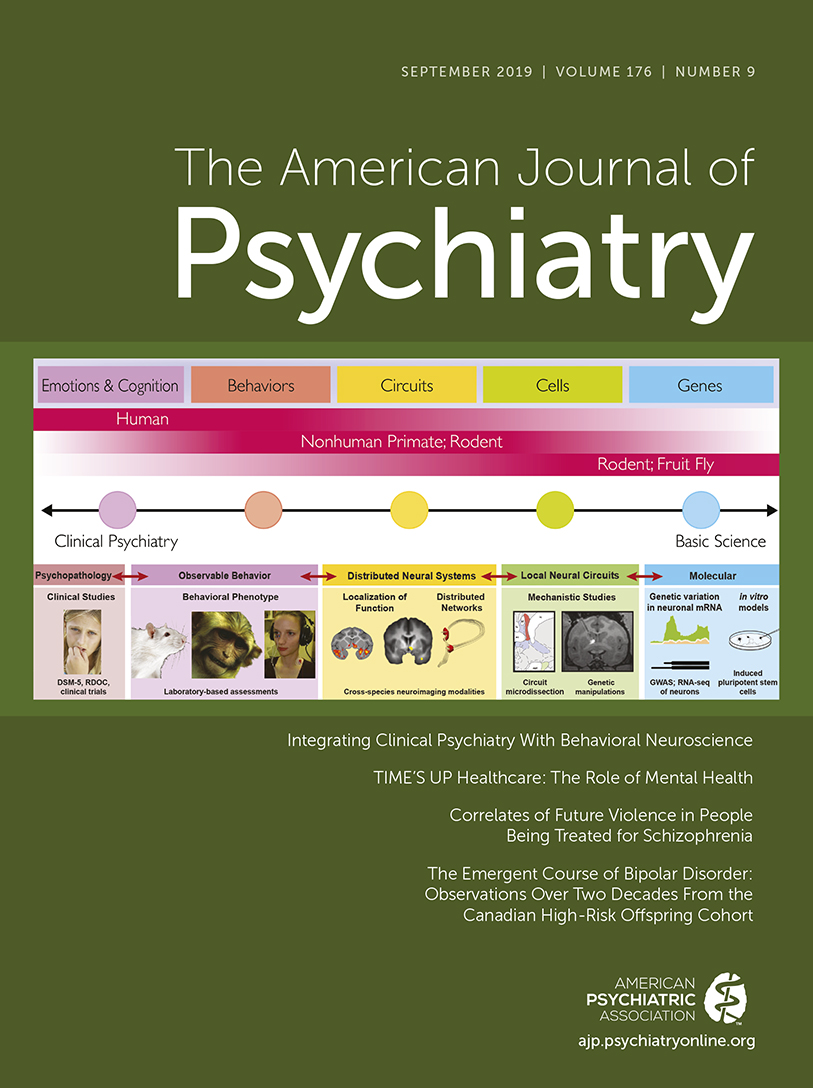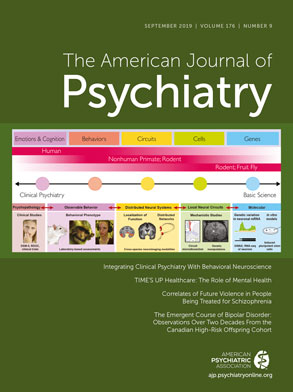“The findings, opinions, and conclusions of this report do not necessarily represent the views of the officers, trustees, or all members of the American Psychiatric Association. Views expressed are those of the authors.” – APA Operations Manual.
At its February 2019 meeting, the APA Joint Reference Committee voted to approve a Resource Document developed by the Council on Consultation-Liaison Psychiatry workgroup on Psychiatric Aspects of Infertility. The workgroup had been charged with reviewing and summarizing the literature on the psychiatric impact of infertility to help educate about its impact in order to improve care. The following summarizes the workgroup report.
In the United States, the estimated prevalence of infertility is between 6% and 18% with increasing incidence with advancing age (
1,
2). Infertility poses a significant psychological burden, and patients receiving assisted reproductive therapies are at risk for psychiatric comorbidity (
3). There are multiple triggers for the development of depression and anxiety during infertility treatment, including wanting to conform to social expectations by becoming a parent, loss of sexual self-esteem and enjoyment, scheduling sexual activity, fear of advancing age, financial concerns due to expense of treatments, and impairment in quality of life (
4,
5).
Depressive and anxiety disorders commonly affect women who are trying to conceive, although there are conflicting results regarding their effects on ability to conceive. Stress, anxiety, and depression may have both direct and indirect effects on fertility. It is unclear whether premorbid diagnoses of anxiety or depression contribute to infertility or whether they result from the psychological distress of infertility and its treatments. There is a high prevalence of these disorders among infertile women, with up to 40% meeting criteria for a psychiatric diagnosis with generalized anxiety disorders most prevalent, followed by major depressive disorder and dysthymia (
3). An increased risk of suicidal ideation has been reported in women who suffer from infertility (e.g., a 9.4% incidence) (
6) with even higher risks for women who were not able to successfully have a child after assisted reproductive treatments (
7). Despite these high rates of psychiatric comorbidity, very few patients seek psychiatric care (with one study noting only 6.7% of patients sought care [
3]).
Fertility medications can also impact mood. Many women experience mood fluctuations related to normal hormonal changes during their natural reproductive cycles (
8). Fertility medications target these same hormones affecting the hypothalamic pituitary ovarian axis and thus can have similar effects on mood (
9,
10). These symptoms are often more clinically impairing in women with a history of depressive disorders and increase their risk for recurrent episodes of psychiatric illness (
11–
15).
Some psychotropic medications may confer risk when used during the time when trying to conceive; this varies according to the class and type of medication. Most studies looking at the exposure to SSRIs during IVF show no difference in pregnancy outcomes when compared with control groups (
16–
18). However, SSRIs and other antidepressants can indirectly reduce fertility by causing sexual dysfunction (
19,
20). Antipsychotics and some mood stabilizers can also impair fertility, either directly through hormonal changes, or indirectly through weight gain, which increases the risk of polycystic ovarian syndrome (
21–
27). Long-term benzodiazepine use has been associated with decreased fertility (
28), and medicinal cannabis can cause menstrual and ovulation changes, as well as decrease oocyte retrieval rate during in vitro fertilization (
29). There is minimal data on the reproductive function effects of other psychotropics. Any risk must be considered in the context of indication for the patient and weighed against the impact of an untreated psychiatric illness. Psychotherapy can also play a role in the treatment of mood disorders. In some cases, alternative treatments can also help with managing mood symptoms both during and after infertility treatments. More studies are needed to better understand the impact of alternative and complementary medicine for the treatment of mood symptoms during infertility.
The relationship between psychiatric illness and infertility is complex. Awareness of the potential psychological effects of infertility treatments is important, as many women are reluctant to discuss their distress and very few seek help. Deciphering grief reactions, bereavement, eating disorders, depressive or anxiety disorders, and medication side effects is important in determining optimal treatment for patients. Understanding the impact of psychiatric treatment on fertility is essential for clinicians treating women when they are trying to conceive.

